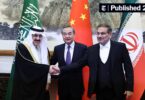In a major blow to timely roll out the second phase of CPEC, special regions and finances, three provinces refused to finance the irrational incentives asked by China for the relocation of its dying industries to the Special economic zones. Only one province, KP agreed to provide land on throwaway price for the special economic zone in the Nowshera district. Punjab Sindh and Baluchistan have refused to provide subsided loan and land on concessionary terms to develop the planned and prioritized special economic zones of CPEC. The Baluchistan Development Authority informed the center those there is no federal government land available in Gawadar to set up the federally owned special economic zone.
It is amazing that without proper and detailed homework the federal government agreed the special incentive package with China for relocation of industries of China and dreams about investment in the special economic zones under the CPEC framework. The package is primarily aimed at those Chinese industrial units which were declared sunset industries by Beijing to be relocated to Pakistan, about which the government claimed to generate hundreds of thousands of jobs. But ironically, the government did not put in place strategies and plan for skill development of working force to handle and operate the Chinese technology in the steel, plastic and other industries which were to be relocated to special economic zones. The CPEC Center of excellence has remained confined to holding seminars, workshops and roundtable conference. The parliament has not been informed that which environmental laws will be applicable to these environment polluting industries, the international laws, the Chinese laws or Pakistani laws. It is pertinent to mention that Pakistan is signatory of the Paris Agreement of Climate Change.
Planning minister told the 53 rd monthly review meeting on CPEC that initially the provincial governments agreed to bear the cost of subsidy for special initiative package but now some provinces have backed out. But he did not disclose the reason that why the province of Punjab, to which most of the benefits of CPEC will accrue, has backtracked. He said that the Board of Investment would now hold meeting with the finance ministry to review the possibility whether the federal government can pick the cost. The Planning Minister belatedly admitted the well known fact that the provision of land for industrial estates is a provincial subject and the federal government can not dictate the terms.
The KP government is not providing any new land on subsidized rate for the establishment of special economic zone. In fact it is the land comprising 98 industrial plots which were developed by the Sarhad Development Authority (SDA) for Risalpur Exports Processing Zones in President Musharraf era. SDA was envisioned and created by the then industries minister in President Ayub Khan Cabinet in 1973 when he was KP finance minister in KP government. This organization successfully facilitated the establishment of a number of industrial estates but was punished and disbanded by the present provincial government for no cogent reasons except the animosity of two industrialist PTI law makers of the upper house of the parliament.
CPEC is so far limited to a few roads and three environment polluting coal-based thermal power plants, having no carbon scrubbles technology to reduce the contents of poisonous gas carbon mono oxide emission in the air which cause diseases like Asthma and Cancer.
A debt riddled country can not afford the irrational incentive package that China slapped on Pakistan in sixth Joint Cooperation Committee meeting of CPEC. The first incentive demanded was that Pakistan will pick 50 percent of mark-up cost of loans that Chinese investors will take for investment in the special economic zones. In the second incentive, Pakistan was supposed to pick 50 percent of subsidy cost on inland transportation of plants and machinery for installation and development in the economic zones. In the third incentive, the respective provincial governments were asked to provide plots by taking half of the payment in advance and the remaining in four biennial installments.
Another big causality in the CPEC framework is the up gradation project of Pakistan Railway track from Karachi to Peshawar. The progress on the multi-billion dollars mainline ML-1 project has remained at standstill Media reports suggests the cost estimates worked out by China are on a very high side against the ones calculated by Pakistan. But the federal minister Ahsan Iqbal is telling a different story in his usual vague and verbose style. He said Pakistan has requested China to share terms of loans that Beijing is expected to provide. But the reality is that Pakistan delayed the approval of mainline ML-1 project after Beijing tagged the phase-1 of the scheme at $ 4 billion, which was $ 627 million higher than the Pakistan’s estimates. The difference over the cost and scope of ML-1 project of Pakistan Railway offended China to block the approval of loans for the project. Pakistan’s government must learn a lesson from the bitter experience of Srilanka who surrendered a seaport and fertile agriculture land to China for its failure to return the most expensive Chinese loans.






